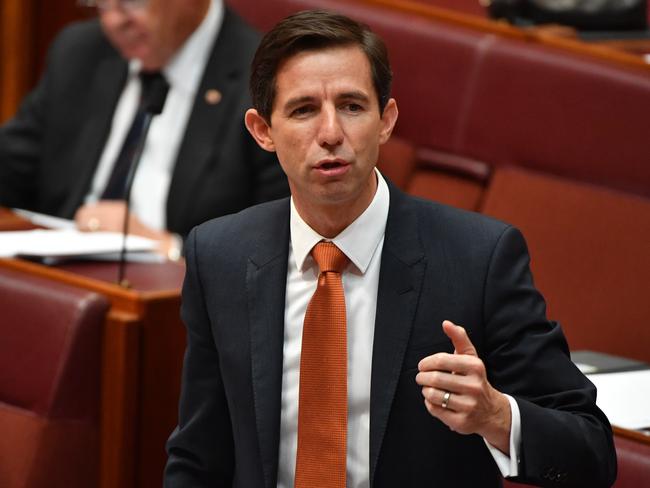Federal Budget 2017-18: Uni students pay more under reform plans
UNIVERSITY students will be slugged higher fees, which they will have to pay back sooner, under a Turnbull Government plan to reform Australia’s higher education system.

News
Don't miss out on the headlines from News . Followed categories will be added to My News.
- Federal Budget 2017: Economist warns budget insanity will create widening deficit
- Coalition Budget forecasts wrong by $100bn, new private sector data shows
UNIVERSITY students will be slugged higher fees, which they will have to pay back sooner, under a Turnbull Government plan to reform Australia’s higher education system.
All universities also face major funding cuts, with $100 million to be stripped from Victoria’s universities next year, in a Budget package that the government says will save taxpayers $2.8 billion.
Student fees will jump 7.5 per cent by 2021 but Education Minister Simon Birmingham has scrapped the Abbott government’s disastrous efforts to deregulate course costs and has guaranteed students will not pay anything upfront.

In a bid to end Labor’s “scare campaign” about $100,000 degrees, the government released figures showing the most expensive six-year medical degree would cost students $71,900 next year, up from $68,000. The cost of a three-year arts degree will rise by $700 from 2018.
The fee increases mean students now have to pay 46 per cent of their course costs, up from 42 per cent, while the government still covers the majority of their higher education.
University graduates will also have to start paying back their loans once they earn more than $42,000, instead of $55,000, but the repayment rate will be reduced for those on low incomes.
Senator Birmingham said this was a “fair, measured and modest” change to claw back more than $52 billion in student debt. The Education Minister also told university leaders on Monday night the government had canned a planned 20 per cent funding cut, instead enforcing a 2.5 per cent “efficiency dividend” in 2018 and 2019 in response to “major Budget pressures”.
From next year, 7.5 per cent of funds given to universities will be tied to performance requirements, which Senator Birmingham said would improve accountability and “put students at the centre of learning”. Other reforms include a $15 million plan to set up eight study hubs to allow regional students to study courses by distance, and allowing permanent residents to access loans to cover their fees.
Opposition Leader Bill Shorten accused the Turnbull Government of slugging students to pay for his $50 billion company tax cuts plan. “I do not want our universities being the reserve of people who have rich parents alone,” he said.


